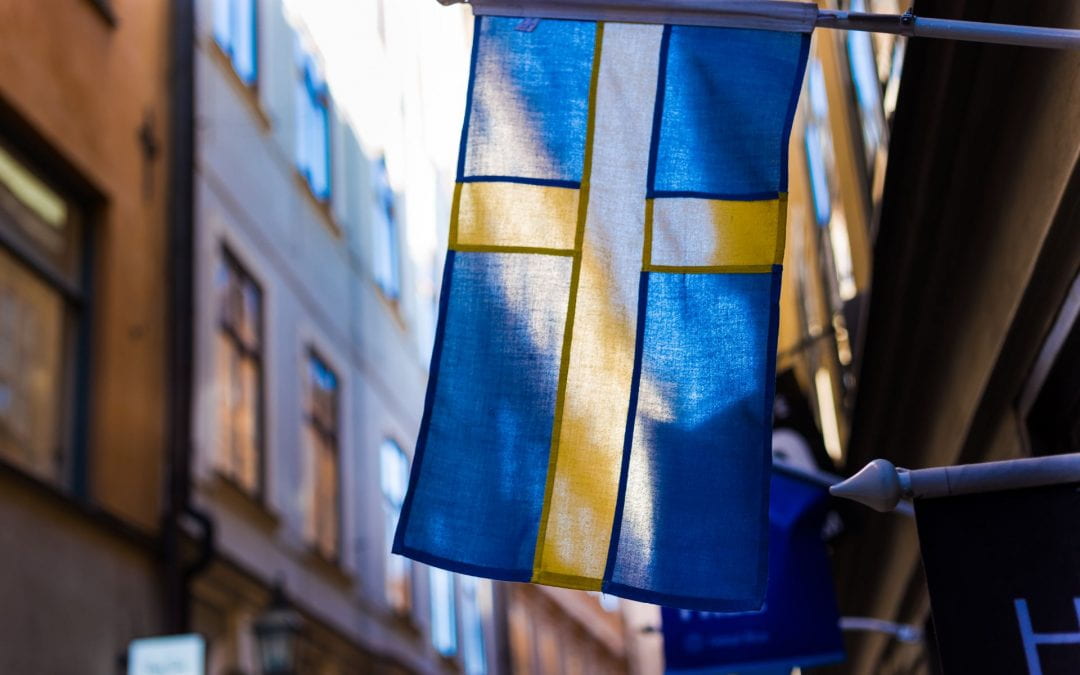By Richey Wyver
While the devastating truth of Sweden’s COVID death rates has invoked an increase in criticism, international reporting continues to swing on a pendulum between themes of, “Has Sweden got it all wrong?” and “Was Sweden right all along?”.
The Swedish COVID-19 response has been widely reported internationally with a mix of morbid fascination and awe, and through the lens of Sweden being a progressive, liberal home of human rights. While the devastating truth of Sweden’s COVID death rates has invoked an increase in criticism, international reporting continues to swing on a pendulum between themes of, “Has Sweden got it all wrong?” and “Was Sweden right all along?”.
Both perspectives come with the shared premise that the “Swedish way” is exceptional, radical and unique. International intrigue arises from the strange conundrum of Sweden being celebrated for liberty and equality, yet seemingly accepting staggering death rates, particularly among its immigrant communities. At the time of writing, Sweden has 5,400 reported COVID deaths, has persistently been near the top of the table of deaths per capita, and has had the highest weekly reported death rates in recent weeks. Currently it is only behind Belgium, Italy, Spain and the UK (and outlier micro states of San Marino and Andorra) in terms of overall deaths per 1 million of population.
The Swedish strategy has been one of herd immunity, the basic premise of which is allowing COVID to spread through non-vulnerable sections of the population in the hope of building up a level of immunity. This strategy has meant that Sweden has avoided a formal lockdown, with an emphasis being placed on individuals acting responsibly, as an intelligent informed population that can make the “right” decisions.
The Swedish strategy is supposedly built around civic trust, trust between the citizens and state institutions and vice versa; a trust that means that the majority of Swedes support the approach. Additionally, strong appeals to nationalism, of Swedishness versus the world, only help to bolster support, and make it possible for many to see external critique as an attack on Sweden and Swedishness.
While internationally there is some diversity in reporting on Sweden, internally defence of the country’s COVID response has been staunch, and has taken on deep, almost aggressive nationalistic tones. Those who have criticised it have found themselves facing an angry backlash. The message for such criticism is that this is the Swedish way, and non-Swedes do not like it because they do not understand it.
Yet the Swedish way has frequently been one of racial segregation, inequality and exclusion. That means people of colour, such as those of Somalian origin, have been grossly over-represented in death rates, and less affluent suburbs, where “immigrant” communities tend to be concentrated, have been hardest hit.
A recent study found that in the Spring, mortality was 220 percent higher for people over 40 born in Somalia, Syria and Iraq compared to the same period in the previous four years. In comparison, mortality among people born in Sweden, the EU, the Nordic countries or North America has decreased by one percent among people aged 40 to 65 over the same period, and has only increased by 19 percent for people older than 65.
Victims and their communities have been indirectly and directly blamed for not understanding COVID and health information, and subsequently are discursively distanced from the Swedishness that is required to be a well-informed and intelligent member of the national body.
The “herd immunity” approach results in sacrificing weaker members of the national body, and in Sweden – as with other countries – death rates have soared among the elderly, particularly when the virus has been allowed to enter care homes. Some commentators have even attempted to direct the responsibility of deaths in old people’s homes away from state policy, instead blaming non-white communities. Former chief epidemiologist Johan Giesecke implied in an interview that care home deaths were the result of staff who were “asylum seekers” and “refugees” not being able to understand information.
Even the high death rates have been posited as an indicator of nationalistic success, with State epidemiologist Anders Tegnell, the popular face of Sweden’s COVID response, arguing that they don’t reflect a failure of the nation’s strategy, but were rather proof that “Sweden is the best in the world in reporting the actual number of dead.”
The Swedish approach has neither acted to alleviate the other virus plaguing the West – racism against East Asians. Asians in Sweden have experienced an increase in racist taunts and violent attacks. Sustained and systemic racism against East Asians is, of course, nothing new, particularly in Sweden, with troubling histories of international adoption from Korea and China, and the on-going popularity of “Yellow Face” performance. Yet racism has reached a new golden era under the guise of COVID-19, with attacks on Asians being treated by some as being justified by the virus.
As a researcher of Swedish colonialism, my ears pricked up early on at undisguised connections to eugenicist and race hygiene, as well as nationalist, discourses in reporting and statements by Sweden’s state epidemiologists and politicians: “The health of the nation”; “flock immunity”; “The Swedish mentality”. While the Swedish strategy may seem experimental, different, controversial and progressive, it is in accordance with Sweden’s history of eugenics and race hygiene, and a state tradition of controlling other bodies to sustain a white Swedish national body. This history included the nation as a pioneering force in race biology, and implementing the most extensive state-led sterilisation programme the world has seen on its population to strengthen “national stock” and eliminate the unwanted.
The Swedish model also captures another feature of Swedish nationalism and whiteness – the idea of Swedish exceptionalism, and of being a country regarded as fundamentally “good”, and judged on its actions differently to elsewhere in the world. This exceptionalism connects to Sweden’s colonial history – and a denial of this history. Johanna Gondouin connects Swedish exceptionalism to cultural geographer Katarina Schough’s work on the notion of “hyperborea”. Hyperborea is a specifically Nordic version of eurocentrism, which entails the idea of Sweden as being a “morally and culturally superior and as a peaceful disseminator of culture”. This is how some Swedes relate to colonialism, with the Swede seen as having been more of a “participating observer” and an “impartial explorer in the name of science and culture” rather than a coloniser.
This idea of cultural superiority was used as a means of exonerating Sweden from responsibility for colonialism. The Swede was imagined in colonial discourses as “the whitest of the white”, and above the “racist rating” of colonial hierarchies. The combination of imagined physical and cultural superiority place the hyperborean Swede in an untouchable position: while a participant in the colonial project, the Swede is marked as superior to colonised people, as morally superior to colonisers, and in a position to criticise the colonial project without being seen – by themselves or others – to be complicit in it.
In more recent times, such exceptionalism enabled Sweden to establish a national myth of being an anti-racist and “good” nation that can educate the rest of the world with its values. This idea is shared internationally, with Sweden usually topping various “goodness” measures.
Arguably it is this exceptionalist mentality that makes it possible to believe that the nation’s pandemic response is the unique Swedish way, the good way; and that the rest of the world has got it wrong, and criticism of the strategy is an ill-informed attack on national values.
Indeed, when State epidemiologist Anders Tegnell reflected on the Swedish COVID strategy, confronted by criticism from the WHO and other states, he robustly defended the approach, but made a small concession: “If we were to encounter the same disease again, knowing exactly what we know about it today, I think we would settle on doing something in between what Sweden did and what the rest of the world has done.”
For more information on COVID-19, head to the Ministry of Health website.
Richey Wyver is a Doctoral Candidate in Sociology at the University of Auckland, and his Ph.D. research is a critical study of Swedish transnational/transracial adoption desire. He completed his BA and MA degrees in International Migration and Ethnic Relations at Malmö University in Sweden.
This article is published as part of a series commissioned by the Europe Institute at the University of Auckland.
For more on the Europe Institute, click here.
Disclaimer: The ideas expressed in this article reflect the author’s views and not necessarily the views of The Big Q.
You might also like:
Nobody expects the Spanish … Coronavirus?
Is German creativity, solidarity and the odd Berlin graffito an answer to COVID-19?


